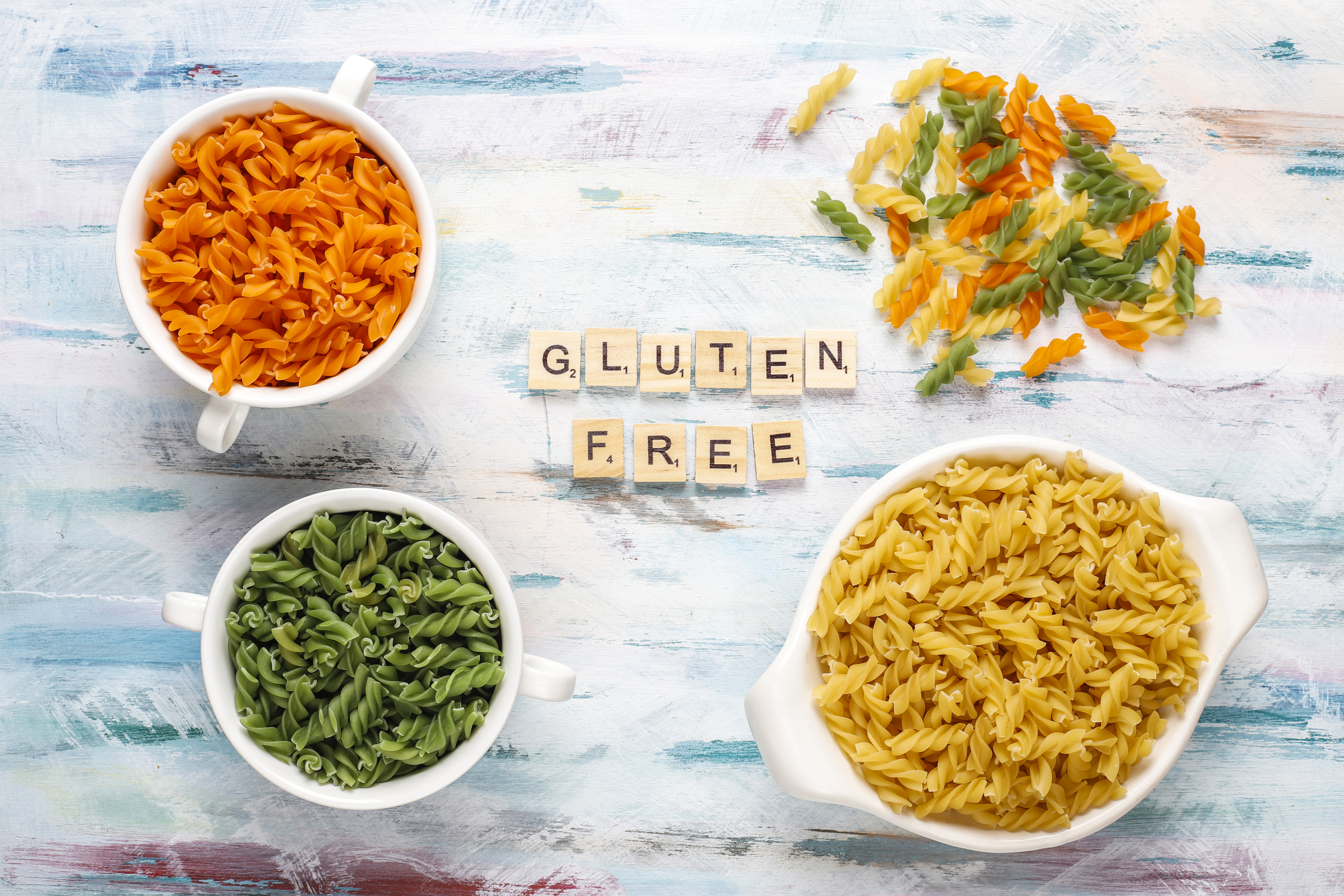

This meal plan is designed to introduce prebiotic and probiotic foods into your diet. Prebiotics are non-digestible fibers that act as food for the beneficial bacteria in your gut, while probiotics are live microorganisms that can help improve gut health. By incorporating both prebiotics and probiotics into your diet, you can support a healthy gut microbiome, which plays a crucial role in overall well-being. Health Benefits A healthy gut microbiome has been linked to a variety of health benefits, including: Improved digestion and bowel function Enhanced immune function Reduced risk of certain chronic diseases, such as inflammatory bowel disease and irritable bowel syndrome Improved mental health Reduced risk of allergies and food sensitivities Getting Started This meal plan provides a variety of delicious and easy-to-prepare meals that are rich in prebiotic and probiotic foods. It is important to note that this is just a starting point, and you can customize it to fit your individual preferences and dietary needs.

Omega-3 fatty acids are essential polyunsaturated fats that our bodies cannot produce on their own. They play a crucial role in various bodily functions, including brain health, heart health, and reducing inflammation.    Conditions that May Benefit from an Omega-3 Rich Diet  Heart Disease: Omega-3 fatty acids can help lower triglycerides, reduce blood pressure, and decrease the risk of heart attacks and strokes.  Depression: Studies have shown that omega-3s may help alleviate symptoms of depression.  Arthritis: Omega-3s can reduce inflammation and joint pain associated with arthritis.  Brain Health: Omega-3s are essential for brain development and function, and may help protect against cognitive decline and Alzheimer's disease.  The Omega-3 Meal Plan  This meal plan provides a variety of recipes that incorporate omega-3-rich foods. It focuses on a balanced diet that includes lean proteins, complex carbohydrates, and healthy fats. **Key Features of the Meal Plan:**  Variety: The plan includes a diverse range of recipes to prevent boredom and ensure you get all the nutrients you need.  Flexibility: You can customize the plan to fit your preferences and dietary needs. Ease of Use: Each recipe includes clear instructions and a list of ingredients.  Educational Resources: The plan includes information on omega-3 fatty acids, food sources, and tips for incorporating them into your diet. **Important Considerations:**  Food Sources: Good sources of omega-3 fatty acids include fatty fish (salmon, mackerel, herring), flaxseeds, chia seeds, walnuts, and algae.  Supplements: If you don't consume enough omega-3-rich foods, you may consider taking fish oil supplements.  Balance: While omega-3s are beneficial, it's important to maintain a balanced diet and avoid excessive intake of unhealthy fats.

"What is a Gluten-Free Diet? Gluten is a protein found in wheat, barley, and rye. A gluten-free diet excludes these grains and any products containing them. Conditions that May Benefit from a Gluten-Free Diet Celiac Disease: An autoimmune disorder triggered by gluten. Non-Celiac Gluten Sensitivity (NCGS): A condition where people experience digestive symptoms or other health issues after consuming gluten. Wheat Allergy: An allergic reaction to wheat protein. The Gluten-Free Meal Plan This meal plan provides a variety of gluten-free recipes for breakfast, lunch, dinner, and snacks. It includes a balance of protein, healthy fats, and gluten-free carbohydrates to ensure a nutritious and satisfying diet. **Key Features of the Meal Plan:** Variety: The plan includes a diverse range of recipes to prevent boredom and ensure you get all the nutrients you need. Flexibility: You can customize the plan to fit your preferences and dietary needs. Ease of Use: Each recipe includes clear instructions and a list of ingredients. Educational Resources: The plan includes information on gluten-free foods, reading food labels, and dining out gluten-free. **Important Considerations:** Cross-Contamination: It's important to avoid cross-contamination with gluten-containing foods during cooking and preparation. Hidden Gluten Sources: Gluten can be found in unexpected places, such as sauces, processed foods, and medications. Nutritional Needs: A gluten-free diet can be nutritionally balanced, but it's important to ensure you're getting enough fiber, iron, and other essential nutrients. Note: This is a general description of a gluten-free meal plan. Please consult with a healthcare professional or registered dietitian for personalized advice and guidance."

FODMAP stands for Fermentable Oligosaccharides, Disaccharides, Monosaccharides, And Polyols. These are short-chain carbohydrates that can be poorly absorbed in the small intestine, leading to digestive symptoms like bloating, gas, and abdominal pain. A low FODMAP diet restricts these types of carbohydrates to improve gut health and reduce uncomfortable symptoms.   Conditions that May Benefit from a Low FODMAP Diet Irritable Bowel Syndrome (IBS)   Functional Bowel Disorders   Small Intestinal Bacterial Overgrowth (SIBO)   Post-Infectious IBS   Indigestion The Low FODMAP Meal Plan This meal plan provides a variety of low FODMAP recipes for breakfast, lunch, dinner, and snacks. It includes a balance of protein, healthy fats, and low FODMAP carbohydrates to ensure a nutritious and satisfying diet.   Key Features of the Meal Plan: Variety: The plan includes a diverse range of recipes to prevent boredom and ensure you get all the nutrients you need.   Flexibility: You can customize the plan to fit your preferences and dietary needs. Ease of Use: Each recipe includes clear instructions and a list of ingredients. Educational Resources: The plan includes information on FODMAPs, low FODMAP foods, and tips for eating out. Important Considerations: Individual Variation: Everyone's FODMAP tolerance is different. You may need to experiment to find the best approach for you. Professional Guidance: It's recommended to consult with a registered dietitian or healthcare professional before starting a low FODMAP diet. Reintroduction Phase: After the elimination phase, you can gradually reintroduce FODMAPs to identify your individual triggers.

This anti-inflammatory meal plan is designed to help you manage and reduce inflammation in your body. Inflammation is a natural immune response, but chronic inflammation can contribute to various health conditions. This meal plan emphasizes nutrient-rich foods that can help combat inflammation and promote overall well-being. What is inflammation? Inflammation is a complex biological response that occurs when your body's tissues become injured or irritated. It's a natural defense mechanism that helps protect your body from infection and injury. However, chronic inflammation can lead to a variety of health problems, including: Arthritis Heart disease   Diabetes Autoimmune disorders Digestive issues How can an anti-inflammatory diet help? An anti-inflammatory diet focuses on consuming foods that have been shown to reduce inflammation in the body. These foods are rich in antioxidants, vitamins, minerals, and healthy fats. By incorporating these foods into your daily meals, you can help support your body's natural healing processes and reduce chronic inflammation.   Key components of an anti-inflammatory diet: Fruits and vegetables: Colorful fruits and vegetables are packed with antioxidants and fiber, which can help reduce inflammation. Aim for a variety of colors to ensure a wide range of nutrients. Whole grains: Whole grains like brown rice, quinoa, and whole-wheat bread are good sources of fiber and other nutrients that can help reduce inflammation. Lean protein: Lean protein sources like fish, poultry, beans, and lentils can help repair and build tissues. Healthy fats: Healthy fats like those found in avocados, nuts, seeds, and olive oil can help reduce inflammation. Herbs and spices: Herbs and spices like turmeric, ginger, garlic, and cinnamon have powerful anti-inflammatory properties. Who can benefit from an anti-inflammatory diet? An anti-inflammatory diet can be beneficial for people of all ages and health conditions. It can be particularly helpful for individuals with: Arthritis Heart disease Diabetes Autoimmune disorders Digestive issues Skin conditions like acne and eczema Additional tips for an anti-inflammatory diet: Limit processed foods, sugary drinks, and excessive alcohol consumption. Stay hydrated by drinking plenty of water. Manage stress through techniques like meditation or yoga. Get enough sleep. Remember to consult with your doctor or a registered dietitian before making significant changes to your diet, especially if you have any underlying health conditions.

Crohn's disease is a chronic inflammatory bowel disease that can affect any part of the gastrointestinal tract. Symptoms can vary widely but often include abdominal pain, diarrhea, fatigue, weight loss, and malnutrition. This 7-day meal plan is designed to help manage Crohn's disease symptoms by incorporating a variety of dietary approaches. Each day focuses on a specific diet type to target different aspects of the condition: Day 1: Anti-inflammatory: This diet emphasizes foods with anti-inflammatory properties, such as fruits, vegetables, whole grains, lean proteins, and healthy fats. Day 2: Mediterranean Diet: This diet is rich in fruits, vegetables, whole grains, legumes, nuts, seeds, and healthy fats like olive oil. It also includes moderate amounts of fish and poultry. Day 3: Low FODMAP: This diet restricts foods high in fermentable short-chain carbohydrates (FODMAPs), which can trigger digestive symptoms in some people with Crohn's disease. Day 4: Omega-3 Fatty Acids: This diet incorporates foods rich in omega-3 fatty acids, such as fatty fish, flaxseed, and chia seeds, which can help reduce inflammation. Day 5: Prebiotics and Probiotics: This diet includes foods that promote gut health, such as yogurt, kefir, sauerkraut, and prebiotic-rich vegetables like garlic and onions. Day 6: Plant-Based: This diet focuses on plant-based foods like fruits, vegetables, whole grains, legumes, and nuts. It may help reduce inflammation and improve digestive symptoms. Day 7: Gluten-Free: This diet eliminates gluten, a protein found in wheat, barley, and rye, which can trigger digestive issues in some people with Crohn's disease. By following this diverse meal plan, individuals with Crohn's disease can experiment with different dietary approaches to find what works best for them and manage their symptoms effectively. It's important to consult with a healthcare professional or registered dietitian before making significant changes to your diet.

This fertility meal plan is designed to improve fertility in men and women. It typically focuses on eating plenty of nutrient-rich foods, such as fruits, vegetables, whole grains, and lean protein. It may also limit or avoid certain foods, such as processed foods, sugary drinks, and unhealthy fats.This meal plan includes:Plenty of fruits and vegetables. Fruits and vegetables are packed with vitamins, minerals, and antioxidants that are essential for overall health and fertility. Aim to eat at least five servings of fruits and vegetables per day.Whole grains over processed grains. Whole grains are a good source of fiber, which can help regulate blood sugar levels and promote weight loss. They are also a good source of B vitamins, which are important for energy production and cell growth.Protein. Protein is essential for building and repairing tissues throughout the body, including the reproductive system. Aim to get 10-15% of your calories from protein.Limited saturated and unhealthy fats. Saturated and unhealthy fats can raise cholesterol levels and increase the risk of heart disease. Aim to get most of your fat intake from healthy sources, such as avocados, nuts, and seeds.Avoid processed foods. Processed foods are often high in unhealthy fats, sugar, and sodium. They can also be low in nutrients. Aim to eat whole, unprocessed foods as much as possible.Stay hydrated. Water is essential for overall health and fertility. Aim to drink eight glasses of water per day.If you are trying to conceive, it is a good idea to talk to your doctor about your diet and any other lifestyle changes you can make to improve your fertility.

Plant-based diets have been linked to a number of health benefits, including weight loss and maintenance, reduced risk of heart disease, stroke, type 2 diabetes, and certain cancers. They are also high in fiber, which is essential for maintaining a healthy gut microbiome. A healthy gut microbiome is important for a number of health benefits, including improved digestion, immune function, and mental health. Additionally, plant-based diets are often high in complex carbohydrates, which provide sustained energy throughout the day. They are also rich in vitamins and minerals that are essential for energy production.While there are some potential drawbacks to following a plant-based diet, such as the need to be more mindful of getting enough certain nutrients, the overall evidence suggests that plant-based diets can offer a number of health benefits.

There are several potential benefits of a soup diet, including:Weight loss: Soups are typically low in calories and high in water, which can help you feel full and satisfied. This can lead to reduced calorie intake and weight loss over time.Improved hydration: Soups are a good source of water, which is essential for overall health and well-being. Staying hydrated can help boost your energy levels, improve your mood, and help your body function properly.Increased nutrient intake: Soups can be a good source of vitamins, minerals, and other nutrients. This is especially true if you choose soups that are made with a variety of vegetables, lean protein, and whole grains.Improved gut health: Soups are a good source of fiber, which is important for gut health. Fiber helps to keep your digestive system healthy and regular.Reduced risk of chronic diseases: Soups that are made with healthy ingredients, such as vegetables, lean protein, and whole grains, can help reduce your risk of chronic diseases such as heart disease, stroke, and type 2 diabetes.This meal plan offers a variety of nutritious stews and soups as well as healthy snack to ensure you and your family get the nutrients you need.

Athletes know the importance of recovery nutrition. To replenish energy stores, repair and rebuild muscle, and rehydrate the body, it’s crucial to get the appropriate balance of macronutrients and liquids. But elite athletes aren’t the only ones who need to re-fuel properly after a hard workout. All athletes benefit from recovery nutrition. Unfortunately for some, it’s an opportunity often missed. Maybe it’s lack of time or confusion about when or what to eat that prompts the detrimental decision to forgo post-workout nourishment. Whether you are an amateur or elite athlete this meal plan gives you the nutrients you need to rejuvenate your body. We recommend drinking 2-3 litres of water a day while following the meal plan.

This meal plan was created for children between the ages of 1 to 5 years - so you can make tasty meals that children will love. Each recipe is Baby-led Weaning friendly, which means it can be served to your baby and they can feed it to themselves! It will be particularly useful for early years parents who want advice on how to provide a nutritious, cost-effective and practical meals for children of this age. The meals shown in this resource all provide the amount of energy (calories) needed by children of this age. The meals provide the important nutrients that young children need to develop and grow. The recipes within this guide that cater for vegan, vegetarian, gluten-free, egg-free and dairy-free diets. It contains practical advice, recipes and photos of portion sizes appropriate for different age groups.

In a 2018 study of Estruch and others that was published in the new England Journal of Medicine more than 7,000 individuals with high risk of heart disease followed either a Mediterranean diet with added olive oil, a Mediterranean diet with added nuts, or a low fat control group. The study lasted four years and eight months and the main focus was on diet's potential effects on heart attack stroke and death from cardiovascular causes. The results showed that the risk of combined heart attacks stroke and death from heart disease was lowered by 31% in those that followed the Mediterranean diet with additional olive oil and 28% in those that followed the Mediterranean diet with additional nuts.